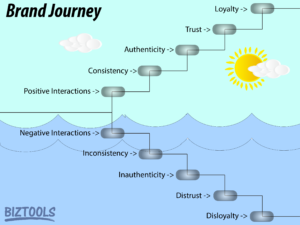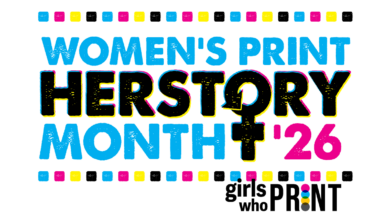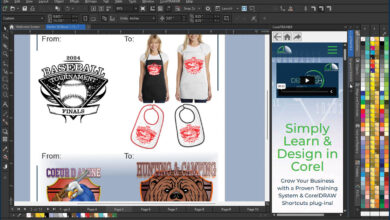The 5 Stages of the Brand Journey
Discover the brand journey stages and what they mean for your business

Just like customer journeys, brands have travels of their own.
If your business depends on you, you don’t own a business – you have a job. And it’s the worst job in the world because you’re working for a lunatic!
— Michael Gerber
If you’ve read Gerber’s classic business book, “E-Myth,” this idea will sound familiar. Sometimes the daily grind can take over, and you wonder why you started a business in the first place. You may ask yourself, “How can I get out of the weeds and start enjoying all this?”
The place I start is simple for all my small business clients: Figure out who you are and what you want to represent to others.
People need a reason to buy from you. They want to know who you are. Your personal growth as a business owner will go through stages. Your brand is going on the same journey.
Your company’s brand is you
Whether you own a franchise or you use your own name on the sign out front, the brand is still you. Your customers will come to form an opinion of who you are and the type of personality your brand takes on. If you are a franchisee, you can rely on some brand image based on the parent company’s efforts, but your customers will still have an opinion about your website, your location, your employees, etc. When it’s your shop, everything rides on your shoulders. As you get better at what you do, your image will grow and take on a momentum of its own. This is the brand journey, and whether you like it or not, you are along for the ride.
The 5 stages of brand journey

The five stages of the brand journey are interactions, consistency, authenticity, trust, and loyalty. They mirror stages of relationships between people. How does this journey begin? The same way it does for people. Think about some of your personal relationships and how you met. There might have been a warm handoff from another friend or a completely spontaneous encounter at a cocktail party. There are parallels between your customers and your business.
Interactions
Your first encounter with a favorite brand or your prospect’s first encounter with you is likely through an introduction. In-person it’s a handshake. In business, it’s likely an advertisement or a search. Each version can be awkward or pleasant, but it’s necessary. Once the first interaction is complete, the two parties form an initial opinion of each other, but it usually doesn’t end after a single occurrence. There will be more encounters and chances to form stronger bonds with each other.
Consistency
As you spend more time with a brand, your new neighbor, or an employee, you will start to notice the quality of these interactions. What you are subconsciously looking for is predictability. You want to identify if this relationship can be beneficial. If your prospects have a great first impression of your business, you have successfully stepped up to the next stage. Now they will be looking for a similar or better experience than the first. If you maintain consistency in your encounters, you develop authenticity.
Authenticity
Authenticity is an important milestone. You are a genuine person. The business is ethical. The quality is there; the intentions are honorable, you seek more opportunities to interact. You speak positively to others. Your business has reached a place where it will be difficult to lose customers to a competitor without good reason.
Trust
You can now rely on the person or the business to act in a predictable, reliable way, and you can focus your efforts on other areas of risk. This relationship is solid and dependable. There is much less to think about. Your business has become a known quantity and eliminated risk in the eyes of the customer. There is very little work involved in this relationship.
Loyalty
This is where others will defend you and your business. This point in the relationship is where love, friendship, and deep emotional bonds are made. You will hear phrases like “I will always buy [insert company name here].” People look forward to seeing you and seek out what you have to offer. They defend you online and in conversation with others. They are an unpaid sales team. This is the point in any relationship where you have gone beyond not having to work or think and have achieved a place where the interactions give back value and joy. The most famous brands have developed this kind of loyalty. Think Apple, Harley Davidson, and McDonald’s. If you are considered a regular at any of the businesses you frequent, that is brand loyalty.
A mountain path
Think of a brand journey like walking up a steep, narrow mountain path. The view gets better, the air is cleaner, and you feel accomplished. It’s slow and steady. It takes work. The same is true of your brand. Do you know what else is true? You can fall at any moment.
Don’t fall underwater
Each opportunity to build your brand, whether personal or professional, also brings opportunities to ruin it. You can fall much faster than you can climb. The journey also works in reverse. If you lose trust, you can lose authenticity, and eventually, you could build inauthenticity and distrust. If you allow your brand to fall too far underwater, you and your business will drown.
Stop and look forward
How will you know where your brand is on the journey? The answer is quite simple: Listen.
- NPS scores are a reliable method of identifying the brand journey
- Social proof on websites like Yelp and Google are also helpful
- Try polling your customers while you are interacting with them
- Sometimes a simple “How are we doing?” can go a lot farther than an independent research report
- Write down or record complaints from dissatisfied customers (They will tell you exactly what you are doing wrong)
- Analyze their complaints in detail. Break them down and try to understand the tone of voice, context, and outside forces.
The best marketing is a referral from a loyal customer. With all the other things we need to worry about in the world today, how nice is it to talk to someone you trust and have them say, “definitely go with [insert your business here]. We won’t shop anywhere else.”?
That’s worth more than any keyword search, commissioned sales team, or paid social campaign. It’s a validation that who you are and what you represent provides you with the chance to own a business and stop working a job for a lunatic.



